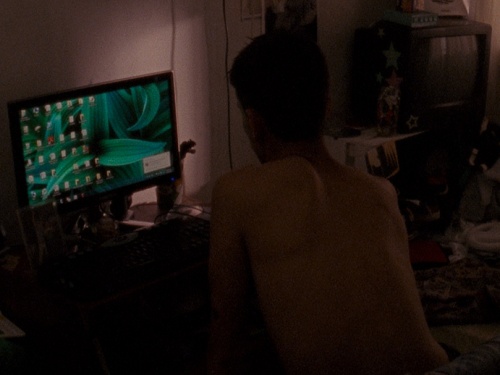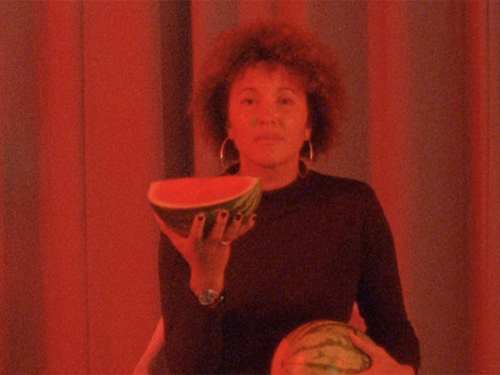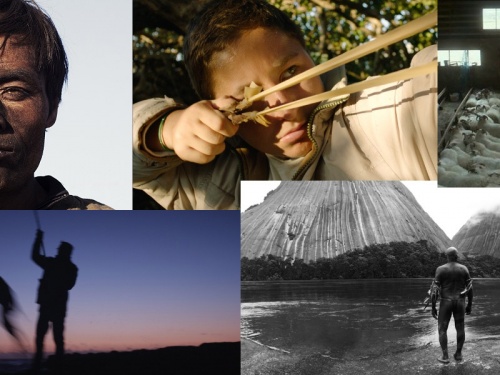On Theresa Hak Kyung Cha
An interview with Bea de Souza
Ahead of a screening of the work of Korean-born multi-disciplinary artist Theresa Hak Kyung Cha on Saturday 26 October, we caught up with Bea de Souza, director of The Agency Gallery and curator of the exhibition A Portrait in Fragments: Theresa Hak Kyung Cha 1951- 1982 (24 September to 26 October 2013) to find out more about her practice.
Some of Cha's work, particularly Aveugle voix, Baren Cave Mute and The Dream of the Audience, seem to explore the power of suggestion through hiding and revealing partial information. Would you consider this a major theme of her practice?
Yes, absolutely. During her education at Berkeley University she was exposed to French structuralist film theory, which was a major influence on her practice. Structuralism fundamentally challenged the belief that a work of film, art or literature reflected a given reality; instead any artistic entity was seen to be constituted of signs = signifiers and signified. In practice this translated in abandoning the narrative in favour of the observation of minute shifts in the relation between signifier and signified. Theresa Cha was very influenced by this, not least because in this theory she discovered a way of exploring the differences of her own Korean language heritage and the American language and Western cultural heritage. This underpins her personal fascination of what is 'lost in translation'. In this sense hiding and revealing and in effect changing the context or order in which messages were received by the audience is a crucial aspect of her work.
Could you speak a little bit more about the multiple disciplines of her work and how the themes explored in her literary work Dictee transcend to a moving image and performance context?
Because Theresa Cha died at the young age of 31, it is hard to say whether her practice might have become more streamlined over time. During her studies and in her last two years in New York her work remained interdisciplinary with a strong connection to language and the written word. So perhaps it would be fair to say that the written scripts Theresa Cha always presented alongside her performance and film pieces from 1974-79 potentially culminated in her literary work Dictee. For example the mention of Joan of Arc in Dictee (published 1982) seems to stem from her performance Other Things Seen, Other Things Heard (1978), where she performs in front of a screening of the highly influential silent film The Passion of Joan of Arc by Carl Theodor Dreyer from 1928.
What are some of her major influences and how are they evidenced within her work?
The most influential period for her work was her stay in Paris in 1976 at the Centre d'Etudes Américain du Cinéma where she met film theorist Thierry Kuntzel and Christian Metz. Furthermore the cinema and theories of Jean Luc Godard were not only important to her but she later edited Godard's texts for a publication with Tanam Press, which also published her novel Dictee. She was also not untouched by the West Coast feminist art movement where her friend Judith Barry was active and organised shows featuring Theresa Cha. The art historian and observer of the Seventies' West Coast Scene, Moira Roth, remarks upon the connection between Barry and Cha who both studied at Berkeley.
How does her work continue to influence contemporary art practice today? Are there any contemporary artists you would consider to follow similar investigations?
I think Theresa Cha's relevance both as a writer but more recently particularly as a filmmaker is becoming very important since her first major retrospective in 2005, which toured from Berkeley to the Generali Foundation in Vienna and The Fundacio Tapies in Barcelona. Curators have taken up re-contextualising her work internationally. Her filmic aesthetic resonates in contemporary practice of, for example, the Otolith Group and Elizabeth Prize, although they do not refer to her work directly. I believe Cha's practice will become inspirational for a new generation of filmmakers and performance artists.
A screening of Theresa Hak Kyung Cha's films followed by a discussion is taking place on Saturday 26 October at 5pm.
This article is posted in: Film
Tagged with: Theresa Hak Kyung Cha, Film, Blog, Bea de Souza





